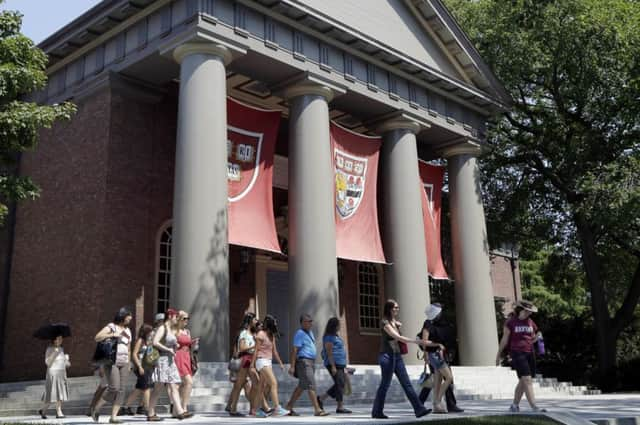US study to help halt brain drain


The study by the Harvard T.H. Chan School of Public Health, based in Massachusetts, is assessing the support available for innovation and entrepreneurs in Leeds and its surrounding areas.
Academics from the school, which has produced two Nobel prize winners, will write a report outlining how policymakers can set up an innovation “ecosystem” around Leeds which will support health and environmental start-up firms.
Advertisement
Hide AdAdvertisement
Hide AdSimilar studies have already been completed in other global cities, such as Malaga in Spain and Guayaquil in Ecuador.
Dr Ramon Sanchez, from the Center for Health and the Global Environment at the Harvard T.H. Chan School of Public Health, said the aim was to help create start-up firms that could solve environmental and health problems, while creating jobs.
He told The Yorkshire Post: “In most places where we have done this study, we identified areas of opportunity; issues that once solved by the local government and the community really help in reducing under-employment.
“For example, doctors or engineers driving cabs or trucks suddenly see opportunities to come back to work in their original profession.”
Advertisement
Hide AdAdvertisement
Hide AdDr Sanchez said the study could help to keep families together, because young people would be able to find work in their home city.
He said: “Having a working innovation ecosystem means that the city is able to create and keep start-ups in the community, which helps in maintaining and even attracting talent to the region.
“In most cities where we have conducted the study and established a working innovation ecosystem we have helped to create jobs for young adults. Usually when economic development is slow and there is an aging population, it is difficult to create job openings for young people and that creates unemployment, because labour mobility for middle-aged people stops and senior citizens delay their retirement for as long as they can.
“A working innovation ecosystem enables the creation of start-ups that usually employ young people, so unemployment is effectively reduced for this age- group. It even creates new opportunities for middle-aged managers that help in the process of transforming start-ups into well-established companies.”
Advertisement
Hide AdAdvertisement
Hide AdDr Sanchez said that a local innovation ecosystem can lead to the formation of start-ups in diverse fields. The study is being led by Dr Sanchez with help from Julia Tanner, who is a visiting graduate student at Harvard and a PHD candidate at Leeds University.
Ms Tanner said: “We want to hear from investors and entrepreneurs, policy makers and lawyers, academics and consultants, suppliers and vendors.”
To take part in the survey go to www.chgeharvard.org/press/sustainable-innovation-leeds-what-your-perspective.
The study from Harvard University aims to assess the health of the innovation community around Leeds and identify possible interventions that could help the region to raise its game.
Advertisement
Hide AdAdvertisement
Hide AdAcademics from Harvard are analysing the state of technology hubs around the world so they can provide governments and policy makers with examples of best practice.
Julia Tanner, a visiting graduate student at Harvard, who is helping to compile the Leeds survey, said: “Do entrepreneurs in Leeds get the support they need to create sustainable technology start-ups that will create jobs and growth in the area?”